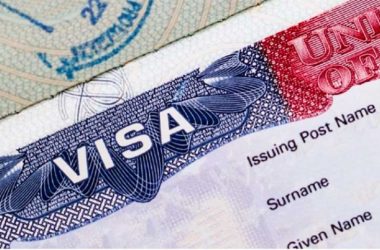
THE decision by Cable & Wireless (which trades under LIME in the Caribbean) to purchase Columbus International (which trades under the name FLOW) for approximately US$3bn poses a major threat to competition in Barbados and throughout the Caribbean region. The Barbados Government and others around the region should block the deal until it has secured guarantees open to public scrutiny and monitoring.
The deal will be a major blow to attempts to improve quality and access to telecommunication connectivity, a critical factor in the regions economic future. Broad band connectivity has become the critical factor in economic production around the world in recent years, an opportunity for the region to leap frog the obstacles of small local markets and distant international ones. Broad band has reduced the previously overriding roles played by land, labour and capital, factors the region has in short supply. Despite the region’s need for economic salvation and its importance to the region’s economic future, broad band in the region is more expensive, less broad and less reliable than in markets the region needs to be competitive with. This deal will widen the gap with those competitors, not close it.
The enormous price that Cable & Wireless is paying – US$1.9bn for the Barbados-based FLOW, plus assuming US$1.2bn in net debt from FLOW’s balance sheet, is a clear measure of the super-profits LIME expects to make from the region. A more competitive business with concern that regulators would scrutinise and limit future profits would fetch a far lower price. But another measure of the super-profits expected is that at no point were the two companies at all bothered about the reaction of governments in the region. In their announcement to shareholders Cable & Wireless did not warn that the deal would be subject to regulatory scrutiny and approval. They took the sad, but perhaps correct view, that the region’s governments were irrelevant to this decision, even though the value in this deal to shareholders comes directly from how the market for telecoms is regulated.
Just a few years ago, Barbadian residential customers could choose between LIME, and TeleBarbados for broadband and with the prospect of a new comer, FLOW, helping to expand choice and lower costs. Then FLOW took over TeleBarbados and LIME has now taken over FLOW, effectively leaving Barbadians with no choice but to use a provider where service frequently drops, responsiveness to customers is weak and costs are internationally uncompetitive. The same could be said in most other countries in the region.
If such a deal was merely proposed in the US or Europe it would attract the attention of the competition authorities who would have placed a stay on the deal until they were sure it would not compromise quality and price or until they had received guarantees on both issues from the company. Governments in the region often reasonably complain about the difficulties of operating with limited tax revenues and high social costs, but many of the critical decisions for out economic future – such as the structure of the market for broad band that lowers costs, improves access and reliability – does not require any funding from government. It does require a government that is wise to the issues, has a vision as to what is critical and the courage to get the critical done, and is vigilant and active in the protection of the citizen’s interests. Monopolists protect their monopolistic profits by being cozy with regulators, sponsoring major charities and socially progressive initiatives and a few politicians. A measure of whether the region’s economic funk is irretrievable will be how many governments in the region willingly or evenly after some public cajoling, stand up for the future interests of their citizens and the capacity for economic development.
AvinashPersaud’s career spreads across finance, academia and public policy. He is currently non-resident Senior Fellow at the Peterson Institute for International Economics in Washington, Emeritus Professor of Gresham College and non-executive Chairman of Elara Capital PLC. He holds a number of non-executive board positions. He was chairman, regulatory sub-committee of the UN Commission on Financial Reform; Chairman, Warwick Commission; Member of the UK Treasury’s Audit and Risk Committee and the Pew Task Force to the US Senate Banking Committee; Visiting Scholar at the IMF and ECB and Distinguished Advisor, Financial Sector Law Reform Commission of India. He is a former senior executive of J. P. Morgan, UBS, State Street and GAM London Ltd. He is a former Governor, London School of Economics and 2010 President of the British Association for the Advancement of Science (Section F). He was elected Director of the Global Association of Risk Professionals and the Royal Economics Society. He won the Jacques de Larosiere Award in Global Finance from the Institute of International Finance and was voted one of the top three public intellectuals in the world on the financial crisis by a panel for Prospect Magazine.














Is it not high time C&W goes away and leaves us alone?